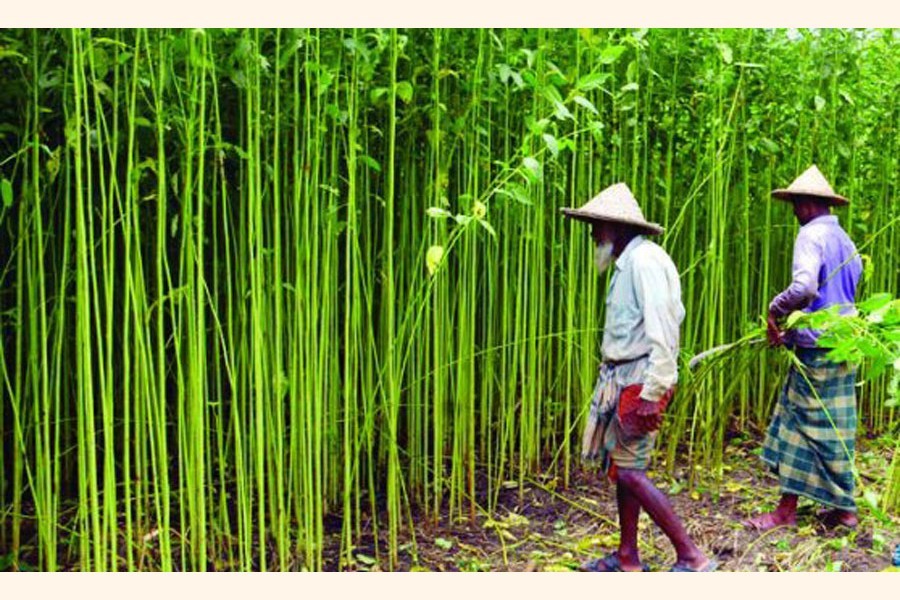Bangladesh needs to define the growing middle class in the fast-changing rural areas with bringing the farmers at the forefront of the development debate, experts at a webinar said.
They said growing physical and virtual communications along with the change of the people's mindset to do something of their own have started changing the economic landscape of the villages.
But the knowledge gap between the policymakers, researchers and people in the urban areas hampers transformation of agriculture and livelihoods in the highly potential rural Bangladesh, they said.
To overcome the situation, they suggested redesigning the country's economic blueprint, taking all the stakeholders like policymakers, researchers, NGOs, private sector and farmers on board as they do firmly believe that the vibrating rural Bangladesh will make a significant contribution to the aspirations of the country's dream of a prosperous nation.
The suggestions and observations came at the virtual discussion titled 'How Rural Is Rural Bangladesh', hosted by Power and Participation Research Centre (PPRC) on Saturday night.
Chairing the event, PPRC executive chairman Dr. Hossain Zillur Rahman said there is a knowledge gap in multiple issues that are leading the rural transformation here.
Farmers need to be treated as a socio-political and economic category in the policymaking, he said, adding that policymakers often discuss the growth trajectory focusing on garments and remittance.
"We need to rethink that agriculture and rural Bangladesh could be a growth driver of the economy. This is a big issue. Is there huge untapped potential in the rural areas? It needs to be well tapped," he said.

"I think we need to rethink rural as the future growth driver of the country," he added.
Chief executive officer of PRAN-RFL Group Ahsan Khan Chowdhury said the rural ecosystem has quickly been developing over the years thanks to a large volume of investments that the government spent on development of rural infrastructure.
"Now it is the time for the private sector to take advantage and try to see how we can really get a lot of benefits from the development activities," he said.
He was highly optimistic over the ongoing rural transmission, saying that the revise migration is taking place in the rural areas as various types of industries started flowing there.
Giving an example of his own company, he said earlier urban areas accounted for 80 per cent of the consumer products of PRAN-RFL Group. "Things changed too fast. Now rural areas account for 80 per cent of our consumer products," he said.
Geof Wood, Emeritus Professor of International Development at the University of Bath said, "We need to get away from the language of 'the farmer' in understanding how productivity increases in agriculture and horticulture corporatisation of the countryside".
He laid emphasis on the idea of the part-time 'farmer' with the hybridity of income streams to a family-one of which is via leasing out land to other operators who can bring the capital to agriculture and horticulture.
Mr Wood observed that the export potential of Bangladesh will be in the Southeast Asia region.
The conditions of the delta require continuous maintenance of infrastructure-an opportunity for the poor to be included, he added.
Professor M A Sattar Mandal of Department of Agricultural Economics, Bangladesh Agricultural University said non-farm activities in the rural areas like rural business, construction and transportation keep increasing in recent times.
And the difference between the urban and rural is minimising too fast that gives an indication of the vibrating rural Bangladesh, he said.
Dr Abul Hossain, Chairperson, Department of Sociology, Green University, said the power structure in the rural areas changed as people having more land hold power there nearly two decades ago.
But now, people having good connection with political parties, police stations and local administration exercised the power there, he added.
He said rural economic middle class emerges in the rural area that needs to be well defined.
Dr Sanzida Akhter, Associate Professor, Department of Women and Gender Studies, University of Dhaka, said rural males are now moving towards the urban areas to earn more for their families and it created a vacuum of agricultural workers in the rural areas.
And females fill up the space but the unfortunate part is proper agriculture knowledge gap, poor access to credit and land hampered their progress, she said.
"We need to recognise and empower them," she added.


